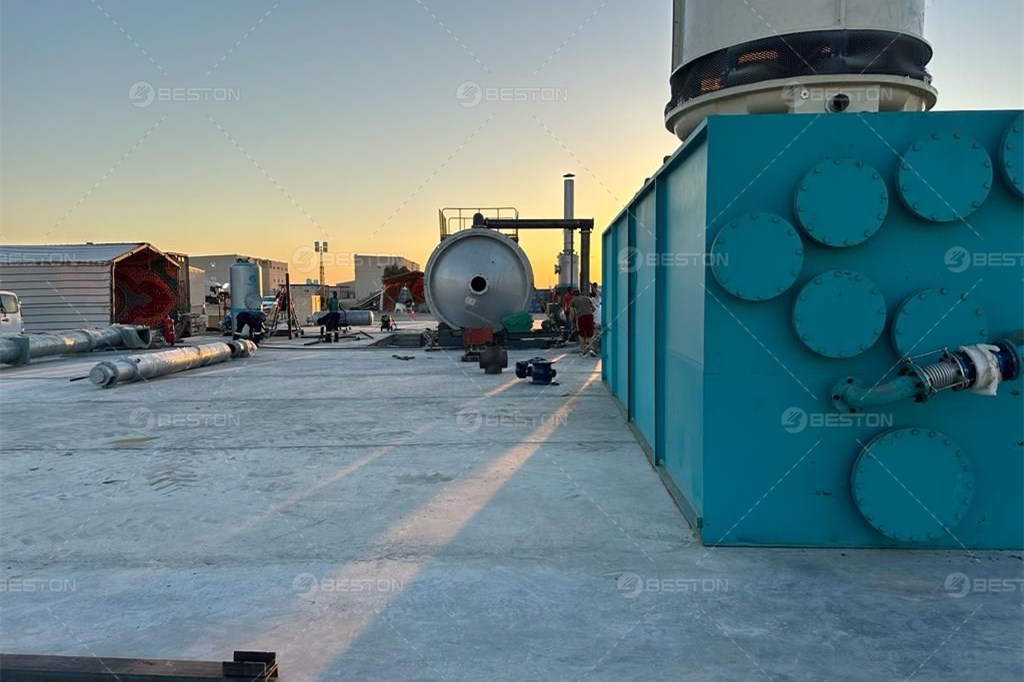6
0
0
Factors Influencing the Cost of a Tyre Pyrolysis Plant
100
Beston Machinery
0
If you're seeking information about the cost of a tyre pyrolysis plant, you've come to the right place. Pyrolysis technology has revolutionized the recycling industry by providing an environmentally friendly and profitable method for disposing of waste tyres, plastics, and various other waste materials. However, a closer look at the industry reveals that not all pyrolysis businesses are successful.
The reason behind many entrepreneurs failing in this industry is their lack of knowledge about the fundamentals of this business. Essentially, it's a technology-based business, and success or failure largely depends on the technology used in various aspects of the business. Therefore, it's crucial to have a detailed understanding of the technical aspects of running this business. The pyrolysis equipment cost plays a significant role in the eventual success or failure of this business.

Here's a list of factors that play a major role in determining the cost of a tyre pyrolysis plant:
Plant Size:
Starting small in this business may require an investment of over $50,000 for a standard or entry-level plant. Keep in mind that this is the factory price, and additional costs like shipping, duties, land, power, labor, permissions, and other necessary expenses need to be factored in.
Investing in a larger plant could cost upwards of $100,000. Generally, the larger the capacity of the plant, the higher the price tag.
Automation Level:
The level of automation in the plant can significantly affect the cost. Fully automated plants can operate 24/7, but they require a substantial initial capital investment.
While fully automated plants offer higher efficiency, a manual or semi-automated plant may be more suitable for those with limited capital.
Type of Plant:
Pyrolysis plants are available in various configurations, including continuous processing and batch processing.
Batch processing plants can handle multiple types of raw materials but require stopping and restarting the process after each batch. They are typically more expensive due to their versatility.
Continuous processing plants are designed for specific raw materials but can run continuously for extended periods. They are often more cost-effective due to their simpler design.
In conclusion, the cost of a pyrolysis plant depends on factors such as its size, level of automation, type, manufacturer, and technology used. To establish a solid foundation for long-term success in this business, it's advisable to collaborate with an experienced partner who has expertise in the industry.
The reason behind many entrepreneurs failing in this industry is their lack of knowledge about the fundamentals of this business. Essentially, it's a technology-based business, and success or failure largely depends on the technology used in various aspects of the business. Therefore, it's crucial to have a detailed understanding of the technical aspects of running this business. The pyrolysis equipment cost plays a significant role in the eventual success or failure of this business.

Here's a list of factors that play a major role in determining the cost of a tyre pyrolysis plant:
Plant Size:
Starting small in this business may require an investment of over $50,000 for a standard or entry-level plant. Keep in mind that this is the factory price, and additional costs like shipping, duties, land, power, labor, permissions, and other necessary expenses need to be factored in.
Investing in a larger plant could cost upwards of $100,000. Generally, the larger the capacity of the plant, the higher the price tag.
Automation Level:
The level of automation in the plant can significantly affect the cost. Fully automated plants can operate 24/7, but they require a substantial initial capital investment.
While fully automated plants offer higher efficiency, a manual or semi-automated plant may be more suitable for those with limited capital.
Type of Plant:
Pyrolysis plants are available in various configurations, including continuous processing and batch processing.
Batch processing plants can handle multiple types of raw materials but require stopping and restarting the process after each batch. They are typically more expensive due to their versatility.
Continuous processing plants are designed for specific raw materials but can run continuously for extended periods. They are often more cost-effective due to their simpler design.
In conclusion, the cost of a pyrolysis plant depends on factors such as its size, level of automation, type, manufacturer, and technology used. To establish a solid foundation for long-term success in this business, it's advisable to collaborate with an experienced partner who has expertise in the industry.
Signatur